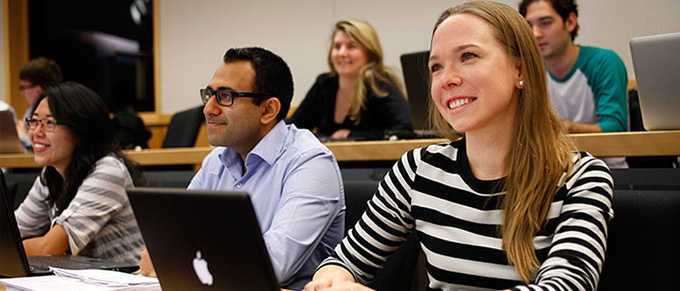
Canada’s recent results in the Programme for International Student Assessment (PISA) have been celebrated widely. In August 2017, the BBC marked Canada as an “education superpower” because we were one of the top-ranking countries.
In fact, in-depth analysis indicates that our high school students’ performance has remained stagnant over the past decade. Even more troubling, almost 10 per cent of Canadian 15-year-olds do not have the science proficiency level required to participate fully in society.
And last week’s announcement of the 2018 Times Higher Education World University Rankings places Canadian universities in a similar situation — just clinging to their positions.
As an assistant professor in the Werklund School of Education at the University of Calgary, I have been working with PISA data for many years. My research with PISA stems from an interest in educational assessment which began when I was a high school science teacher. One of my research streams focuses on investigating the different types of assessments used across Canada.
No improvements
PISA is an international assessment of the skills and knowledge of 15-year-old students, a collaborative effort among member countries of the Organisation for Economic Co-operation and Development (OECD). In the last round of the assessment, 72 countries participated.
After the 2015 results were released, Canada was celebrated because only a handful of countries outperformed us in science, math and reading. When these results were compared to our past performance, it suggested Canadian students’ achievement improved over the years; particularly in the past three years.
However, analysis of Canada’s PISA results indicates that our 15-year-olds’ results have not improved at all. When we look at Canadian PISA scores over the past few years, we see (as shown in Figure 2) that there are only minimal changes in each subject. Although students’ performance has fluctuated throughout the years, when we compare the 2015 results to those from 2006, the results indicate that students’ performance has either decreased or stayed the same.
The PISA covers reading, mathematics and science. Each assessment includes questions from all three areas, but each year the focus area shifts. We compare 2015 with 2006 here because both are years in which science was the focus.
Statistically, these differences are not significant which means these fluctuations may have occurred by chance and not due to actual decreases in student performance. When we consider the statistical insignificance and past trends, we can safely conclude that Canadian students have shown no improvements in any of the subjects over the past decade.
Celebrating a decline
If students’ scores indicate there are no improvement in students’ performance, then why do our rankings (shown in Figure 1) show that we have improved? The reason is because the rankings are depending on the performance of other countries in comparison to Canada. For example, students from Finland outperformed Canadian students in science during the 2012 PISA. But by 2015 our students performed at the same levels as their counterparts in Finland.
Canada’s rankings improved because students’ performance from Finland decreased over time. Hence, as we celebrate the improvements of Canada’s rankings, we are also celebrating a decline in the performance of students from other top-performing countries.
Instead of focusing on the country rankings, it is more appropriate to highlight students’ performance based on the scores achieved in each subject.
Failing initiatives?
The stability of Canadian students’ performance on PISA warrants concerns regarding the state of our education programs. Over the past decade, there have been many initiatives and programs implemented across Canada in an effort to improve students’ achievement. These include the Literacy and Numeracy Secretariat in Ontario and the Alberta Initiative for School Improvement.
However, the 2015 PISA results continue to indicate that almost one in 10 Canadian students do not meet the minimum level of science proficiency required to participate in society. Instead of celebrating Canada’s PISA results, now is the time to reflect upon them — to identify areas of weaknesses in our education programs so that we may enhance Canada’s education.
We need to ask ourselves: Why are our students failing to improve, especially in science?
Author Bio: Man-Wai Chu is Assistant Professor of Education at the University of Calgary
